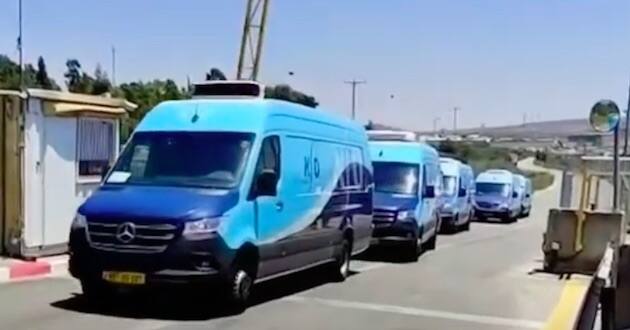Palestinian leaders have lost the opportunity to immediately vaccinate residents after refusing Israel’s offer of a vaccine swap. Now South Korea says it will take the 700,000 doses from Israel.
Under the vaccine swap arrangement announced by both governments on Tuesday, South Korea will give Israel back the same number of shots, already on order from Pfizer, in September and October.
The Palestinian Authority had pulled out of a similar agreement in which Israel would give the PA vaccines that were not expired and could be administered immediately. Israel would then receive from Pfizer a later shipment of vaccines meant for the Arabs living in Judea and Samaria – the West Bank. Palestinian leaders had accused Israel of nefarious intentions.
Other countries quickly lined up to receive the shipments from Israel with South Korea landing the agreement.
South Korea has quickly distributed the COVID-19 vaccines it has, but has struggled to obtain enough doses in a timely manner amid tight global supplies, particularly in Asia.
READ: Palestinian citizens say their own leaders are the police state
“This is a win-win deal,” Israeli Prime Minister Naftali Bennett said in a statement announcing the deal on Tuesday. “Together we will beat the pandemic.”
After a stellar rollout, Israel has administered both shots to around 60 percent of its population and, like many countries, seen turnout level off.
Korea Disease Control and Prevention Agency (KDCA) Director Jeong Eun-kyeong said the deal will allow South Korea to accelerate its vaccination plans, including providing shots to employees in some sectors that have a high amount of contact with other people.
Local authorities will decide who gets the vaccines, but she said priority could be given to street cleaners, delivery workers and retail employees, for example.
South Korean authorities said last week they are hoping to achieve herd immunity earlier than the current November target by inoculating at least 70 percent of the population with a minimum of one vaccine dose, mostly mRNA ones such as Pfizer’s.
Jeong said if the vaccine drive goes according to plan and South Korea finds itself with surplus doses later in the year after sending back the agreed doses to Israel, it too will look to share its stockpile with other countries.
Israel’s vaccination drive
Israel received a huge supply of the Pfizer-BioNTech vaccine shortly after its approval last year following an arrangement with the producers to share data about its effects.
That deal helped Israel roll out one of the world’s fastest inoculation drives but has also raised concerns about unused stock expiring.
Palestinian leaders were criticized by health officials and Palestinian citizens for putting people’s lives at risk by politicizing Israel’s vaccine offer. The West Bank continues to struggle to administer vaccines and also turned down Israel’s plan to send medical teams to quickly administer the one million doses.
More than 80 percent of Israel’s adult population is fully inoculated against COVID-19.
–Wire services








